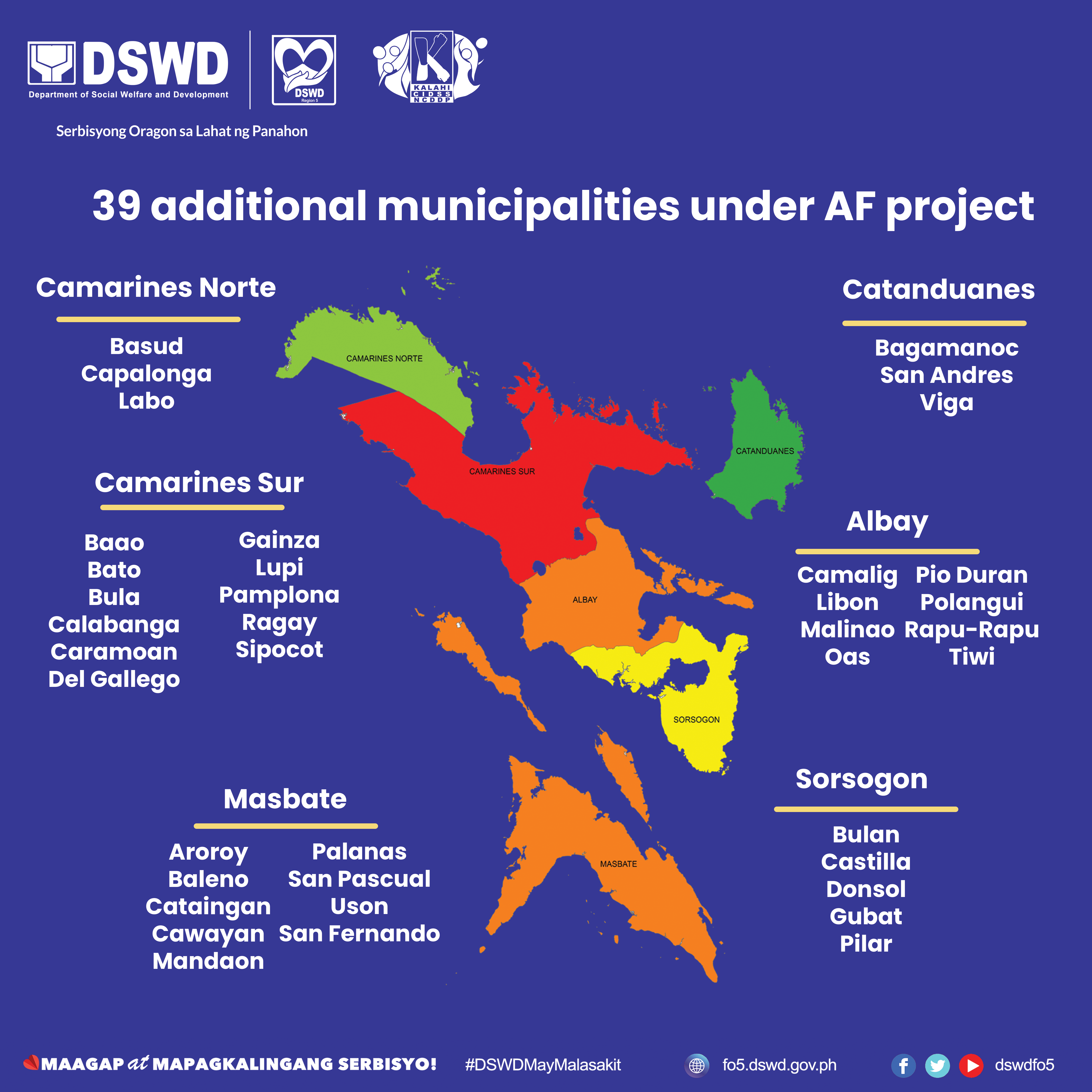
The Department of Social Welfare and Development Kapit-Bisig Laban sa Kahirapan –Comprehensive and Integrated Delivery of Social Services (DSWD KALAHI-CIDSS) increased its current coverage of Additional Financing (AF) from 37 municipalities to 76 municipalities in Bicol Region.
The Department allocated PHP 720,673,800.00 community grant for the 39 additional municipalities aimed at addressing the effects of the pandemic.
For the 39 towns, the project will be implemented in eight (8) municipalities of Albay, three (3) municipalities of Camarines Norte, 11 municipalities of Camarines Sur, three (3) municipalities of Catanduanes, nine (9) municipalities of Masbate, and five (5) municipalities of Sorsogon.
According to Regional Director Leo Quintilla, CESE, the AF project will be using the Disaster Response Operations Modality (DROM), a simplified procedure of the program to accelerate the implementation of the community-identified projects.
“The community projects that will be identified by the communities will be in relation to COVID-19 recovery efforts like Cash-for-Work scheme, rehabilitation of facilities or public buildings, provision of PPEs, hygiene kits, cleaning supplies, and other projects,” he explained.
AF LaunchingThe AF is a three-year implementation funded by the Government of the Philippines and the World Bank. To officially launch the project, the Department will spearhead its unveiling in three (3) clusters: Luzon, Visayas, and Mindanao.
For Luzon cluster, Bicol Region will host the event on July 22, 2021 in Legazpi City, Albay. The event will be streamed live through the official Facebook page of DSWD Region V.
Aside from the ceremonial launch, the Department will also promote how the Community-Driven Development (CDD) approach plays a role in disaster response and post-disaster response as well as gain support on the institutionalization of CDD as a national strategy for poverty reduction and disaster response.
KALAHI-CIDSS is a poverty alleviation program of DSWD that uses CDD approach to help communities in poor municipalities to identify challenges, make informed decisions, and control resources to address poverty.
